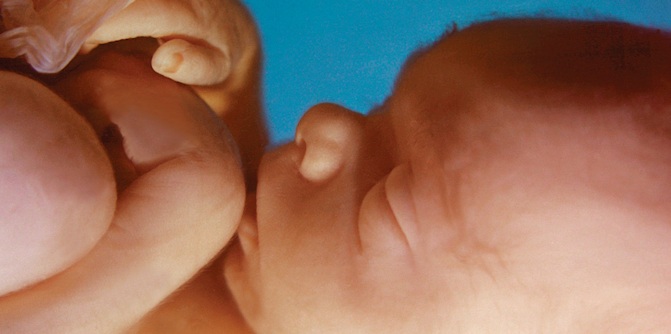A Hawaii abortion activist is suing the federal government in a case that could force every pharmacy in America to sell dangerous abortion drugs.
Dr. Graham Chelius, an ob-gyn in Waimea, Hawaii, is suing the FDA and the U.S. Department of Health and Human Services with the help of the American Civil Liberties Union.
In the lawsuit filed Tuesday, the ACLU argues that the FDA is restricting women’s access to abortion by requiring that the abortion drug be dispensed at a medical facility under the supervision of a certified provider (not necessarily even a doctor), KHON News 2 reports.
Chelius and the pro-abortion legal group want the FDA to allow pharmacies to give out the abortion drug mifeprex, also known as mifepristone or RU-486.
The abortion drug works by blocking the hormone progesterone, causing the uterine wall to break down and basically suffocating the unborn baby. A second abortion drug, misoprostol, typically is taken a day or two later to induce contractions to expel the dead baby’s body.
Because of the high failure rate and the risks involved with the abortion drug in later pregnancies, the FDA limited approval for use only in the first 49 days from the start of a woman’s last menstrual period. However, last year under pro-abortion President Barack Obama’s administration, the FDA changed its guidelines for the drug, allowing it to be used later in pregnancy and in smaller doses.
Now, abortion activists are pushing for even fewer regulations.
NPR reports more about the lawsuit:
The suit, filed Tuesday in federal court in Hawaii, challenges a longstanding U.S. Food and Drug Administration regulation allowing the abortion pill, Mifeprex, to be dispensed only at a medical facility under the care of a certified provider. Among other requirements, those providers must pre-register with the drug manufacturer, keep the medication in stock, and be capable of providing a surgical abortion if complications arise.
Chelius argues those rules are unnecessary and cumbersome. Hawaii has one of the nation’s highest poverty rates, and the delays and expenses are sometimes insurmountable barriers, Chelius said. The case could have implications beyond Hawaii.
“The FDA restrictions create delays that often push medication abortion out of reach of my patients,” he said. “And some of my patients are simply unable to make this trip and instead have been forced to carry a pregnancy to term against their will.”
Dr. Donna Harrison, executive director of the American Association of Pro-life Obstetricians and Gynecologists, told NPR that Chelius’ proposal really is very dangerous for women.
“Is the pharmacist going to answer her call at 5 in the morning when she’s suffering or needs some help? The pharmacist is not going to be there,” Harrison said.
Despite what abortion activists claim, the abortion drug is dangerous to women as well as their unborn babies, especially unsupervised. Mifepristone is responsible for killing millions of unborn babies in the United States and at least 14 women. In 2012, a U.S. Food and Drug Administration report indicated that 14 women in the United States alone died from using the mifepristone abortion drug and 2,207 women were injured by it.
The drug has claimed the lives of more than 2 million unborn children in the United States since its approval at the end of the Clinton administration. In addition to the number of unborn children whose lives have been lost to the abortion drug, women have suffered as well, as a Planned Parenthood study admits at least one woman is seriously injured from the abortion pill daily.
Increasingly, abortion activists have been pushing for legal access to dangerous, do-it-yourself abortions, as well as abortions performed by nurses and midwives.
“All these things make it easier for the [abortion] clinic … but don’t necessarily make it safer for the woman,” said Randall O’Bannon with the National Right to Life Committee earlier this summer. “We’re seeing a full-blown promotion of do-it-yourself abortions.”
O’Bannon said some prominent pro-abortion researchers have been suggesting that abortion drugs be offered over the counter. And right now, a pro-abortion research group is offering women abortion drugs by mail as part of a study, he said.
The University of California, Berkeley has a Self-Induced Abortion Legal Team, a nonprofit group that “envisions a world” where abortion drugs are as easy to buy as the morning-after pill, according to the Christian Science Monitor.
And abortion activists launched a website earlier this year that promotes do-it-yourself abortions to American women.
Americans United for Life spokeswoman Kristi Hamrick told the Washington Post this spring: “These drugs are dangerous. They are deadly. If they are mishandled, they result in serious injury. To just distribute them and put them in an automatic dispenser like a can of soda is absolutely medical malpractice.”








